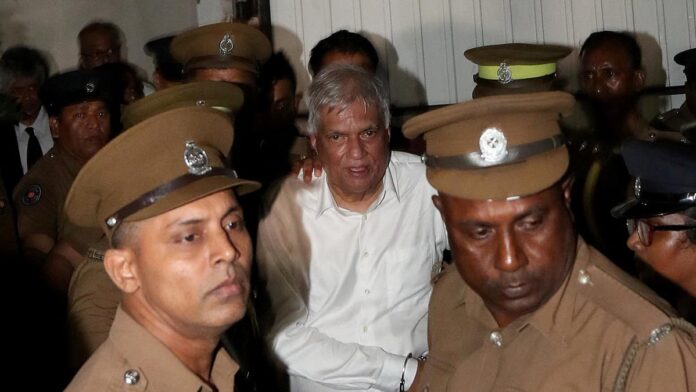August 25, Colombo (LNW): A collective of opposition party leaders has voiced deep concern over the recent arrest of former President Ranil Wickremesinghe by the Criminal Investigation Department (CID), describing the move as an alarming departure from democratic principles and a sign of growing authoritarian tendencies within the state apparatus.
In a strongly worded statement, the opposition condemned the decision to detain the former Head of State on non-bailable charges, labelling it a serious encroachment upon the foundations of Sri Lanka’s multiparty democracy. The group warned that the unfolding situation signals a deliberate erosion of democratic norms and urged the public to remain vigilant in defence of the country’s constitutional values.
The statement draws attention to what the signatories call an increasingly aggressive use of legal mechanisms to target political opponents. In particular, it questions the legitimacy of remanding a former president over allegations that remain under investigation, pointing out the inherent difficulty in neatly separating the official and personal expenditures of a Head of State. Such actions, they argue, create a dangerous precedent where political rivalry may masquerade as legal accountability.
The opposition leaders further contend that the charges levelled against Wickremesinghe appear to be driven less by legal merit and more by political motivations, with the law being selectively interpreted to serve partisan ends. They also raised concerns about what they perceive as creeping politicisation within the Attorney General’s Department—warning that if these patterns are allowed to continue unchecked, they could lead to the dismantling of institutional independence.
The statement concluded with a call to citizens across the country to oppose what was described as a “clear drift toward authoritarianism,” urging them to make full use of peaceful and democratic means to resist the dismantling of civil liberties. The signatories stressed that the country’s hard-won freedoms and democratic traditions must be preserved—not just for the present, but for the generations to come.
